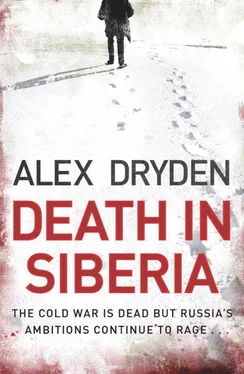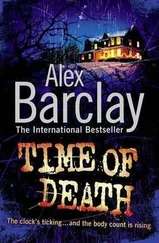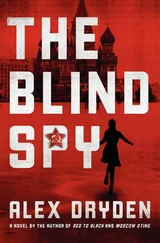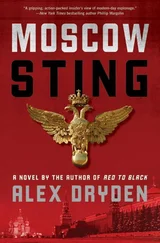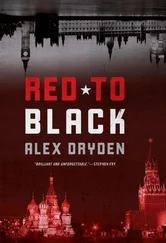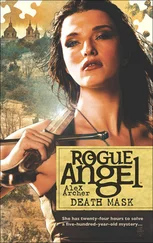Without closing the drawers, he returned to the kitchen, cleaned the glass on a fresh tea towel, sat down and squinted at the jumble of figures. But even magnified – particularly magnified, he decided – they were still just as incomprehensible as they had been before.
Petrov sat, magnifying glass in hand, and wondered if there were anyone he knew well enough to whom he could show at least a line or two.
His deceased wife had worked as a laboratory assistant at the military industrial complex outside the city, known as Krasnoyarsk B. In Soviet times the mountain from which it was hollowed appeared on no maps. She had made friends with a few of the scientists there – women – one of whom had even visited the apartment on an occasion when Petrov had cooked dinner for the three of them. Petrov supposed he could call her. He could look in his wife’s address book for the name which he’d forgotten.
But what if even a few lines of the mathematical jungle on the pages in front of him contained something she recognised to be highly secret and sensitive – and surely they did, or they wouldn’t have been so carefully concealed? The woman would feel obliged to ask him how he had got hold of them, at the very least, and, more than likely, would also feel obliged to report their existence to her superiors. Then he’d be a suspect, possibly laying himself open to charges of treason, let alone tampering with evidence.
He sat back in the chair and stared at the pages, laid out side by side, as if watching them would provide some clue to their decipherment. Then he stood, gathered them together in a bundle, clipped them with a paperclip, and went to the bathroom holding them in his hand. He lifted an asbestos panel above the toilet and was about to slide them inside the ceiling when he thought of the mice. He stepped down, walked back into the living room and dug around again in the drawers of his wife’s desk. Finally he came up with a large tin in which his wife had kept her stamp collection. He buried the papers under the stamps, closed the tin and sealed it with tape. Then he returned to the bathroom where he placed the tin in the ceiling and slid the asbestos panel shut again. He would think about the documents at greater leisure later in the day.
On the way to the militsiya station Petrov listened to the new Krasnoyarsk ballet company on the car radio. They were performing Stravinsky’s Rite of Spring that evening and the radio programme was by way of an advertisement. It was a ballet in which, as Stravinsky himself had noted, In a circle of sage elders a young girl dances herself to death .
Though not a patch on Moscow’s or Petersburg’s ballet companies, the city, nevertheless, was trying to nurture a Siberian company without the help of the State or of the billionaires who sucked the people and the place dry with their aluminium factories.
As Petrov listened to the violent magic of the music, he decided what he would do. Maybe it was the music that set his mind running, its discordant, tuneless cacophony supposedly echoing a ritualistic, pre-Russian folk practice – an Evenk practice, perhaps – at least in the Slav Stravinsky’s mind, Petrov thought. It was amazing how the Slavs fantasised about his own people, and the Evenk were only one of dozens of ethnic Siberian tribes that seemed to set their imaginations racing. So, what was he to do?
It all came together for him in a flash. He would take a vacation from work, extended leave for a few weeks at least – that was the decision that came to him. His leave could be combined with his thoughts from earlier that morning. He decided to tell Major Sadko that his grandfather was ill and undoubtedly dying. That he wished to see him once more before he died.
The thought of seeing Gannyka before the old shaman left this world filled Petrov with a sudden happiness that he couldn’t explain. He hadn’t been north, up to where his family tribe lived, for more than five years. Somehow it had never crossed his mind. But he could take his leave any time and the urgent immediacy of his request of absence would only be granted because of family illness or death.
The music tumbled around in his head in its repetitive way that was supposed to imitate the ecstatic chants and out-of-body experiences of so-called primitive people. The shamans perhaps. Yet somehow it seemed to connect him with another way of life, theirs, his mother’s and his grandfather’s.
But then what? It was more than a thousand miles downriver to the village and they’d be gone from there by now with the reindeer herds. And what would he do with the papers? He decided he couldn’t risk leaving them behind. He would have to take them with him.
He parked the police car on some waste ground behind the station and walked around the front and into the reception. No expense spent, he thought, as he surveyed the decayed infrastructure of the building and recalled that the toilets hadn’t been working the day before. The girl behind the metal grille nodded sharply at him.
‘Major Sadko wants to see you right away.’
He nodded in return but didn’t reply. The door next to the grille was unlocked by the woman from the inside and he went straight to Sadko’s office, down a hall of peeling paint, if you could call the colourless daub put on to the walls, God knew how long ago, paint. He knocked and entered.
Sadko was sitting, or slumping, in a wheeled, swivel office chair. He was a large Slav with a drinker’s gut and russet cheeks beneath a wrinkled brow, bushy eyebrows, and grey, thinning hair that stuck to his sweating scalp. The picture of a true, corrupt police officer, in Petrov’s mind, and there was no love lost between them.
‘Sit down,’ Sadko said without a greeting.
Petrov took the chair on the far side of the desk.
‘You were the first to look at the body of the foreigner this morning,’ the major snapped before Petrov was even seated.
‘Yes, Major.’
‘Find anything interesting?’
Sadko sat back in his swivel chair and pressed his thumbs together as if he were conducting some kind of sign language.
‘Nothing. Apart from the fact that he’s a foreigner.’
‘ Was a foreigner. After I informed them, the MVD have been back on the phone.’
Petrov saw no need to reply.
‘They want to talk to you, Petrov.’ There was a hint of triumph in his voice.
‘When?’ He didn’t give the major the satisfaction of asking him why.
‘Now. Right away. Get down to their headquarters. A major called Robolev.’
‘Good.’
Sadko raised an eyebrow. ‘What’s good about it, lieutenant?’
‘I mean it’s good that it’s now,’ Petrov replied. ‘I’ve had news that my grandfather is dying. I’d come to ask you if I could take time off.’
‘Well. If the MVD let you go,’ Sadko sneered, ‘you can take a few days off, if you must.’
‘It’ll take a few days just to get there. He’s in the wilderness above the Arctic Circle. I’ll need a couple of weeks at least. I can take my summer vacation now, if that’s all right.’
‘Any more than that and it’s unpaid,’ Sadko replied. ‘But let’s see what the MVD have to say first, shall we?’
When Petrov left the building, no one asked him about his grandfather. Nothing interested anyone except their own day’s fulfilment. Why should they ask about his grandfather? He was just a nomad who was on nobody’s mental screen.
The MVD building was a grim façade of stone with small windows, barred on the inside, that seemed to exert some sort of malevolent presence on the street. Petrov imagined that pedestrians would cross to the other side to avoid it. He waited in a huge chamber of a lobby, two storeys high, until a woman in a tight skirt and clacking high heels, like a secretary in a fifties American movie, came to summon him upstairs. In the elevator she clutched a clipboard to her chest as if she’d forgotten to put on her blouse. An elevator! Petrov thought. The State still spent its money on monitoring its population and looking for spies or subversives, yet it didn’t give a damn about ordinary criminality or the daily death count.
Читать дальше
